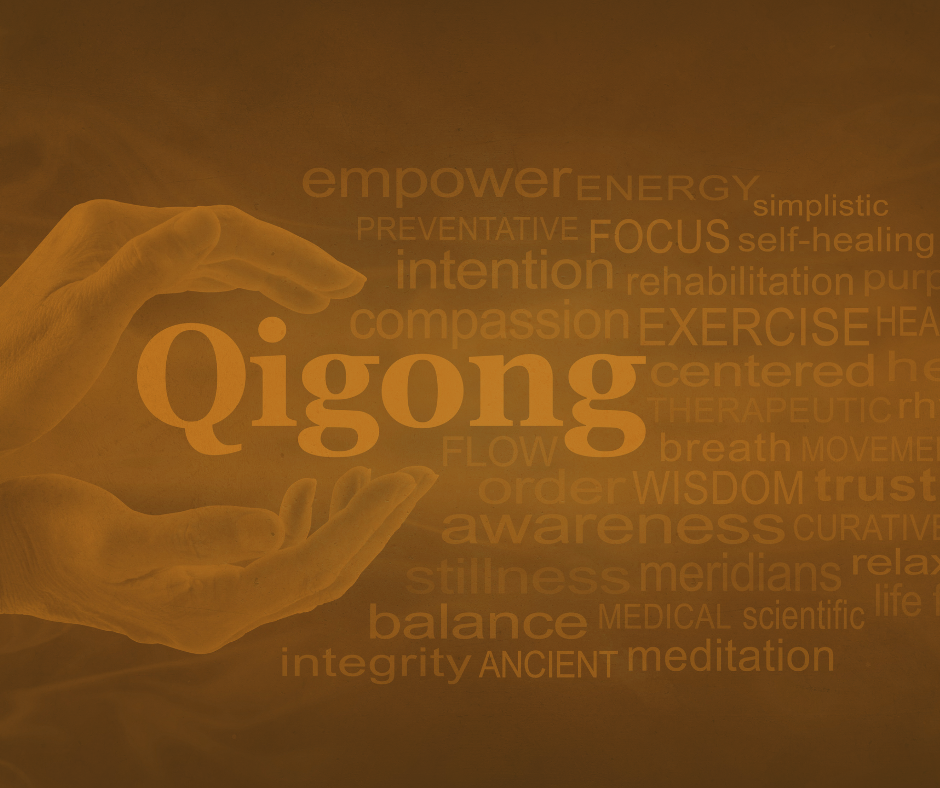Discover the Benefits of Qigong
You may have heard of Tai Chi, but did you know that Tai Chi actually evolved from Qigong? I recently sat down with Robin Maltenfort, Morpheus Wellness coach, to learn more about her new Qigong practice and how it can help people with their health and wellness. Robin explained to me that Qigong is an ancient Chinese art aimed at promoting health and balance within the body. The word combines “qi” (breath or air) with “gong” (skill cultivated through effort and practice).
What exactly is Qigong?
I learned through the course of my conversation with Robin that thousands of years ago in China, Daoist practitioners developed techniques to maintain personal health, such as breathwork, postures, and intention setting. From these practices, Qigong was born. Imagine engaging in free-flowing, repeated movements that can be done either standing or seated. The gentle, natural motions of Qigong make it accessible to people of all ages and abilities. Unlike Tai Chi, Qigong doesn’t require memorizing long sequences of movements or adhering strictly to a specific order. It’s a practice easily adaptable for beginners and helps develop both body and energy awareness.
How does Qigong differ from Tai Chi?
Think of Tai Chi as a carefully choreographed dance. Robin describes Tai Chi as involving a specific sequence of movements and postures—sometimes 7 steps, 24 steps, or even 108 steps! As a martial arts form, Tai Chi focuses on the memorization of these steps. On the other hand, Qigong is more like a flowing river, with simpler, often repeated movements. The emphasis in Qigong is on awareness and feeling, and while some memorization is involved, it’s not the primary focus.
Qigong vs. Tai Chi—which might be better for you?
Simply put, Robin says it really comes down to individual wellness goals, physical abilities, and general health.
- Your Wellness Goals: If you’re seeking a sense of wellness and physical well-being without having to memorize a sequence of postures and movements, Qigong might be the better option for you. However, if you enjoy routines that you can memorize and perform, Tai Chi could be more your style.
- Your Physical Ability: While Tai Chi forms can be modified, there’s generally less flexibility compared to a Qigong routine. If you have physical limitations in strength, flexibility, or balance, starting with Qigong might be easier.
- Your Health: Due to the specific postures and steps required in Tai Chi, Qigong is often considered more beginner-friendly.
What are the potential health benefits of Qigong?
Robin explains that Qigong can significantly improve balance, ease joint pain, enhance walking, regulate heart rate, alleviate digestive issues like acid reflux and constipation, and even improve sleep. With regular practice, Qigong can promote both physical wellness and spiritual balance.
How do you get started?
As a beginner in Qigong, it’s important to find a practitioner who specializes in the practice to guide you through coordinating physical movements with breath. Robin explains that this may sound simple, but there’s a lot happening within your body and mind during a Qigong session. The slow, gentle movements warm up tendons, ligaments, and muscles, mobilize joints, and promote circulation of body fluids. Deep breathing, a key aspect of Qigong, calms the sympathetic nervous system and activates the parasympathetic side, promoting relaxation.
Whether you’re seeking physical wellness, spiritual balance, or a gentle way to stay active, embarking on this journey with Robin offers a pathway to health and harmony. For more information about our new in-person or telehealth Qigong services, call us at (813) 586-0542 or visit our website to contact us.
